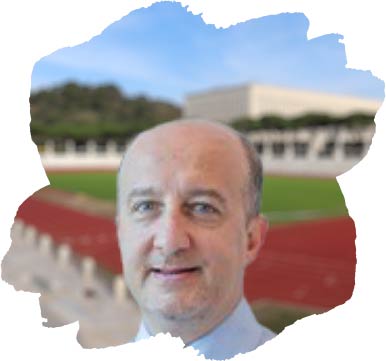
The sport scientist perspective on the use of wearable sensors
Wearable technology is becoming widely available and it is changing the way sports science support is provided to athletes and coaches. Gone are the days when sports science was delivered uniquely via laboratory testing, when athletes were needed to attend well equipped laboratories to perform various tests able to determine their status and develop training advice. Thanks to the advancement of technology, it is now possible to perform measurements in gyms, on the field of play, at training and competitions, and at home. This talk will discuss the challenges of the ‘data tsunami’ which forces sports scientists to acquire new skills and abilities to analyse and visualize information to be able to improve decision-making when planning training activities and/or specific interventions
Marco Cardinale - Biosketch
Prof. Marco Cardinale is the Executive Director of Research and Scientific Support at Aspetar Hospital in Qatar, one of the few IOC and FIFA excellence centers in the World. A Sports Scientist with extensive experience in various fields, He was the Head of Sports Physiology and Research of Aspire Academy in Doha (Qatar) from 2013 to 2020. Before moving to Qatar, he led the Sports Science activities for the preparation of Team GB (Great Britain and Northern Ireland) at the Beijing 2008, Vancouver 2010, and London 2012 Olympic Games. A widely published and cited author in the scientific literature on various aspects of human performance, he has also patented an innovative exercise device consisting of a vibratory biofeedback system which received research awards from NEStech and the Design Council.